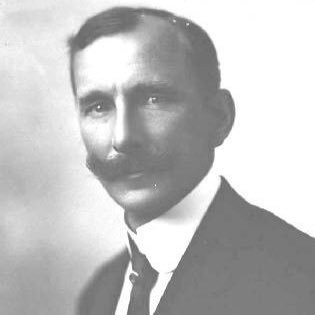Say What?
I recently got my copy of The University Of Chicago Magazine. In it was an extract from a conversation on freedom of speech. (Why? Because it's the 100th anniversary of Schenck v. United States, which the magazine mistakenly identifies as the Court's "first decision on the First Amendment." It's the first decision on freedom of speech under the First Amendment--there are First Amendment religion cases decades older.)
The discussion is between two Chicago law professors, Geoff Stone and David Strauss. They're contributors to a new book entitled The Free Speech Century. Here's Stone discussing how changing media may mean a changing First Amendment:
Stone: People our age grew up [generally getting] their news and information from mainstream sources that were reasonably trustworthy and reliable [....]
With the invention of radio, Congress imposed the fairness doctrine, which provided that if you got a license to operate a radio of television station, you were under legal obligation to cover public affairs and public matters in a fair and balanced way. [The doctrine was repealed by the Reagan administration but] if you go to ABC, PBS, or the New York Times you generally see a fairly responsible, mainstream approach, even though nothing in the law requires them to do that.
But cable was never subject to the fairness doctrine. [.....] And then with social media, we see a kind of tribalism to which many individuals get their news and information from what one would have to say are highly unreliable, highly ideological sources that lead them to be deeply polarized in their views, and even in their understanding of what the real facts are.
The First Amendment was based upon the notion of a free marketplace of ideas in which people would responsibly get access to information, ideas and different opinions, and be able to debate them with one another and come to some sensible conclusions, but the tribalism that we're now seeing raises serious questions about whether those basic assumptions can be carried into the future.
A bit later in the conversation:
Strauss: One kind of simplistic, almost caricature of the First Amendment and the American system of free speech is that, yes, private parties do all kinds of bad things, but the real threat comes from the government. Is that fair, and do we need to change that attitude?
Stone: [....] On one hand, the fundamental concern of the First Amendment is distrust of government. But on the other, there are circumstances where trust of government may be better than distrust if we are giving it limited powers and monitoring to make sure they enforce those powers in an appropriate way.
The fairness doctrine, I think, was a great success....
Let's just stop here, because I don't have the energy to reply to all this. I'll just note, in general, I disagree with almost everything they say.
Do I think they're espousing unreliable, even tribal, views? Yes, I do. Would it be a good thing if I had the legal power to guide them into making better and more responsible arguments that would serve the public interest? I don't know, but I'm pretty sure if I had that power they wouldn't be happy about it. So why do they think others should be happy if they, or people not unlike them, get to legally decide who's responsible and who isn't?



2 Comments:
I imagine Stone and Strauss are contributing to the Klobuchar campaign. She is considered a moderate Democrat because she doesn't support breaking up the social media companies, just regulating them to the point where they can't spread unfair viewpoints.
You disagree with almost everything they say because you have a brain, and you use it.
But you miss their point. They're not talking about you having the power to limit others' speech. They're talking about their having the power to limit others' speech.
Completely different thing.
Post a Comment
<< Home